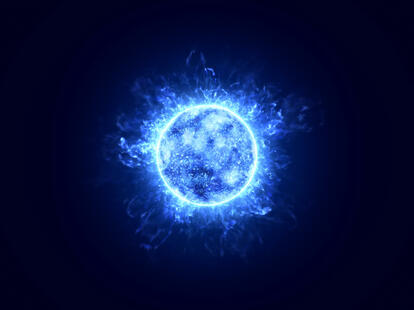
Birthday
Isaac Asimov
Isaac Asimov was born on 2 January 1920 in Petrovich, Russia, and is one of the most famous science fiction authors. He emigrated to the USA, where he became an author, biochemist, and professor of biochemistry. Asimov is best known for his works in science fiction, fantasy, and non-fiction. He is considered one of the most prolific and influential authors in science fiction and has received numerous awards for his works. Asimov died at the age of 72 on 6 April 1992.
Some of Isaac Asimov's most famous and important works are:
- The Robot Series : This series includes several novels and short stories in which Asimov presents his "Three Laws of Robotics" and explores the relationships between humans and robots in the future.
- The Foundation Trilogy : This three-part series is about a group of scientists who try to shape the future of human civilization by establishing a "foundation." The trilogy is considered a milestone of science fiction literature and has brought Asimov international fame.
Saint's day
Weather Proverb

Birthday: Capricorn
Chinese zodiac sign:
牛 Earth Ox
27 146 days ago (74 years, 3 months, 27 days)
Daily aspects

This square can bring irritability, restlessness, lack of balance, violent behavior, and too much passion at the expense of others' wants. It can give way to a contradictory nature. You are also prone to injury and really need to be careful around firearms and sharp knives.

The Trine between the Moon and Neptune gives you an active imagination, good empathy, and an excellent understanding of art. You are attractive, dreamy, and enthusiastic. It's a great time for writing down your goals in life, meditation, psychic practice, reading tarot cards, practicing astrology, and making love till all hours of the morning.

In terms of love and marriage, this is a unique aspect, as it is an auspicious time to get married. Your feeling of love is reliable, and you are adaptable and courteous. You are in a cheerful mood, care for your family, and avoid arguments and conflicts. You will also definitely enjoy the pleasures of food!

This transit between the Moon and Pluto awakens your sentimental nature. You enjoy adventures and extreme actions. Your emotional life is very distinctive. The desire to travel awakens within you. You may go through a positive transformation of the mind. Dealings with taxes and joint finances will have a positive outcome.

You may experience indigestion during this square, so "heavy" foods like red meat should be avoided. Try stick to low GI food to keep your energy up. You should cancel any important meetings you have with women, and definitely don't sign business contracts - especially if it has to do with feminine products. You may feel very teary and depressed, so lay off the candy and alcohol. It's best to exercise and take walks in nature right now, and spend time with pets that give you unconditional love.
Current timezone: Europe/Moscow (UTC +03:00). change timezone
Calendar
Please choose a day:


